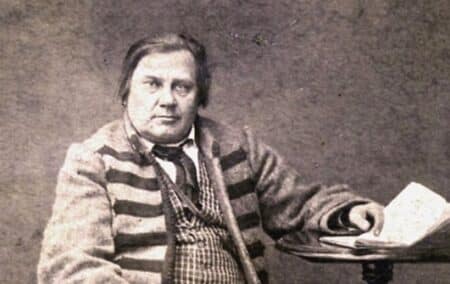Poems written about the 19th Century nationalist uprising against the Russian Empire have been declared ‘extremist’ in what is being seen as an expanding crackdown on opposition, including anti-Russian sentiment, in Belarus.
According to the BBC, experts described the banning of the poems as part of a transition to totalitarianism, as many opponents of the regime are nationalists who dislike authoritarian Belarus leader Alexander Lukashenko’s pro-Russian stance.
The prosecutor’s office in the capital Minsk announced on Thursday said that the two poems by Vintsent Dunin-Marcinkievič, The Winds are Floating and Conversation of an Elderly Man, along with a foreword to the author’s collected works by literary critic Yazep Yanushkevich, had been declared ‘extremist material’.
The independent outlet, Nexta, said that books by several 20th Century authors – Larisa Geniyush, Vladimir Neklyayev, Lidiya Arobey, and Natalya Arseneva – had also been banned.
The BBC reports that the poems by Dunin-Marcinkievič were written during the Kastus Kalinowski rebellion of 1863 by Belarusians and Poles in what was then Poland and a part of the Russian Empire.
At the time, Dunin-Marcinkievič was accused of disseminating ideas ‘harmful for the authorities’. However, though he was arrested and incarcerated, his direct participation in the uprising was never proven.
Today his works are part of the school curriculum and his plays are performed regularly. He has several streets named after him and he is celebrated in his hometown of Bobruisk, in the south-east of Belarus.
Image: Image by Felix Wolf from Pixabay


